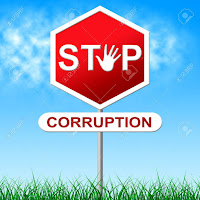By
Stanley Epstein Corruption can be defined quiet simply. It is the abuse of entrusted power for private gain.
Corruption hurts everyone. But even more so it hurts those who lives and livelihood depends on the integrity of people in a position of authority.
Corruption includes many activities like bribery and embezzlement. Corruption occurs at all levels and layers; at a personal, business and government level.
Two particular streams have come under the spotlight in recent years - government, or 'political' corruption, which occurs when an official or other governmental employee acts in an official capacity for personal gain and at a corporate level where activities are undertaken that are aimed at improperly influencing government officials to obtain business.
The problem is widespread. The practice of corporations undertaking activities that are aimed at improperly influencing government officials to secure business has existed for centuries. Though clearly wrong, both morally and ethically, this practice has until recently been silently condoned.
In recent decades there has been a growing disquiet at the activities of many multinational corporations who turn to bribery aimed at influencing foreign government officials to obtain new business, contracts and concessions for themselves. What multinational corporations would never do on their home turf was seen as fair game when it comes to doing business with other countries, especially in the developing world.
These practices, while frowned upon, have only recently become illegal in many jurisdictions. Today over 38 countries are committed by treaty to implement anti-corruption legislation.
There are three recognized ‘Scales’ of corruption – Petty, Grand and Systemic.
Petty corruption – this takes the form of small favors that occur between a number of individuals. Petty corruption occurs at the ‘working’ end of government services. Examples of this type of corruption include the offering and acceptance of small gifts or the use of personal connections to obtain ‘favours’ or a speedy conclusion of routine government procedures. The culprits are usually junior and middle level officials, who generally are considerably underpaid.
Grand corruption – this takes the form of large scale corruption that affects the government on a considerable scale. This type of corruption occurs at the highest levels of government involving senior officials and even government ministers and usually involves significant subversion of the foreign countries political, legal and economic systems.
Systemic corruption - widespread corruption that forms a part of the day-to-day fabric of society often due to the weaknesses of an organization or a process.
There are a number of methods of corruption. We will briefly examine the three most prevalent. These methods are often used concurrently.
Bribery – inappropriate use of gifts and favours in exchange for personal gain. Favours given may include money, gifts, and entertainment or employment benefits.
Embezzlement, theft and fraud – someone who has access to money or other assets illegally taking them for his own use.
Extortion and blackmail - the threat to use violence, false imprisonment, exposure of an individual's secrets or prior crimes if the individual does not do something or act in a certain way. Usually money is demanded in exchange for continued secrecy.
Each of these three categories is in effect a crime and is prohibited and punishable by law in most jurisdictions. There are also a whole range of corrupt practices which may not be illegal, yet their use is questionable. This includes practices such as the misuse of one's powers and decision-making abilities to unfairly favour one party over another or favoritism and nepotism like hiring a family member to a role they are not qualified for or promoting a staff member who belongs to the same political party as you, irrespective of merit.










